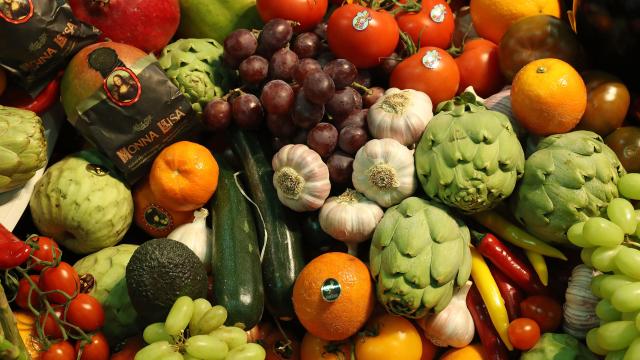For people with the debilitating gut condition Crohn’s disease, there’s often little that can be done to completely prevent their recurring episodes of painful gastrointestinal symptoms. But a new case study out this month suggests that one patient has been able to achieve a full remission of his symptoms for two years by switching to a plant-based diet.
Crohn’s is a form of inflammatory bowel disease (IBD). Its symptoms can vary, depending on where along the digestive system it strikes, but typically include diarrhoea, weight loss, intense stomach cramps after eating, and even joint pain.
People with Crohn’s often experience flare-ups of the disease, with lulls of symptom-free days. There are treatments available to manage these active episodes or to lessen the chance of a relapse, but they can come with serious side effects or simply don’t work for some patients.
Ultimately, many sufferers get surgery to remove parts of their damaged gut, which can lead to some improvement. But even then, only a few ever experience a long-term remission of symptoms.
According to the case study, published this June in the journal Nutrients, the 25-year-old man had first been diagnosed with Crohn’s in 2014.
His symptoms improved after being placed on the autoimmune drug infliximab, but they hadn’t fully gone away by early 2017. Starting that March, though, he cut out all animal products and processed foods from his diet for 40 days, as part of a “period of religious observation.”
During that time, and for the first time in two years, his symptoms faded away entirely. Understandably, the patient decided to stick with the diet full-time.
By August 2017, the authors wrote, a colonoscopy of the man’s ileum – the end of the small intestine long affected by his Crohn’s – revealed that it had fully healed, with no evidence of the disease being active. In early 2018, the man was taken off his medication entirely. And as of May 2019, he’s continued to avoid a major clinical relapse.
“This case study offers hope for hundreds of thousands of people suffering from the painful symptoms associated with Crohn’s disease,” said study co-author Hana Kahleova, director of clinical research at the Physicians Committee for Responsible Medicine, a non-profit organisation based in Washington D.C., in a release.
It should be noted that the Physicians Committee for Responsible Medicine has long advocated for people to switch to plant-based diets, citing health benefits like a lower risk of heart disease, along with other interventions that would reduce the use of animals in science or consumer product testing.
But this isn’t the first piece of research—in both people and mice—to suggest that a mostly-vegetarian diet can help people with Crohn’s reduce or wholly eliminate their symptoms.
Crohn’s is a complicated disorder. While many sufferers do report dietary triggers for their symptoms, these triggers can include the insoluble fibre found in many vegetables and fruits. So it might be the case, as some research has suggested, that a high-fibre diet rich in plants can prevent a relapse of Crohn’s, even if too much fibre can also aggravate the gut during an active episode.
In any case, given the chronic, frustrating nature of Crohn’s disease, it’s certainly worth studying further if a vegetarian lifestyle, whether by itself or in combination with medication, really can be a long-term effective option for sufferers. But Crohn’s patients should still talk with their doctors first before embarking on any major diet changes.
